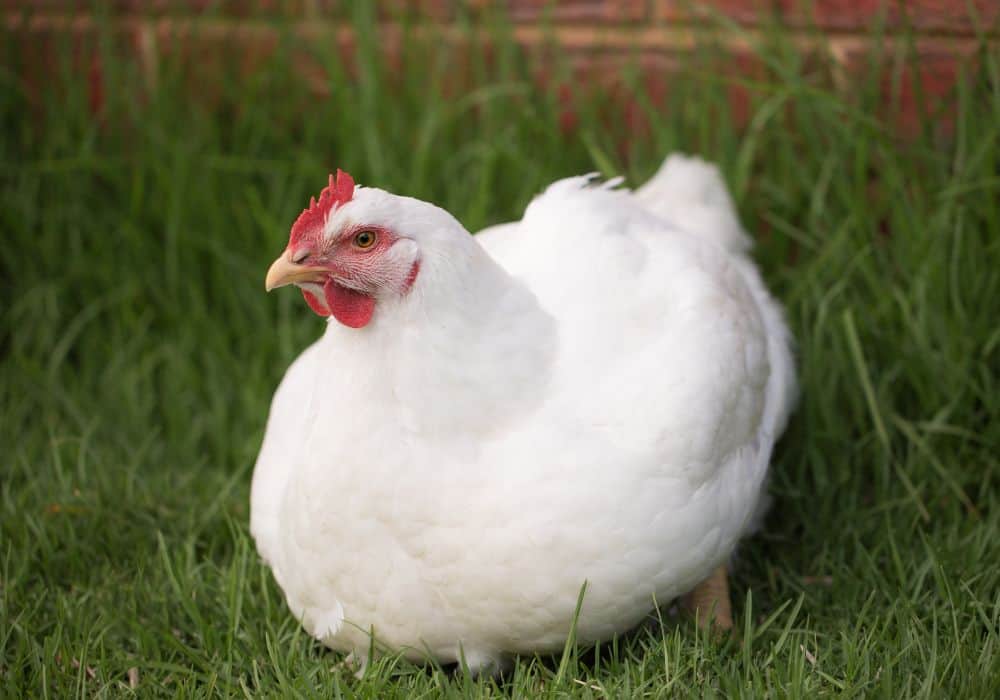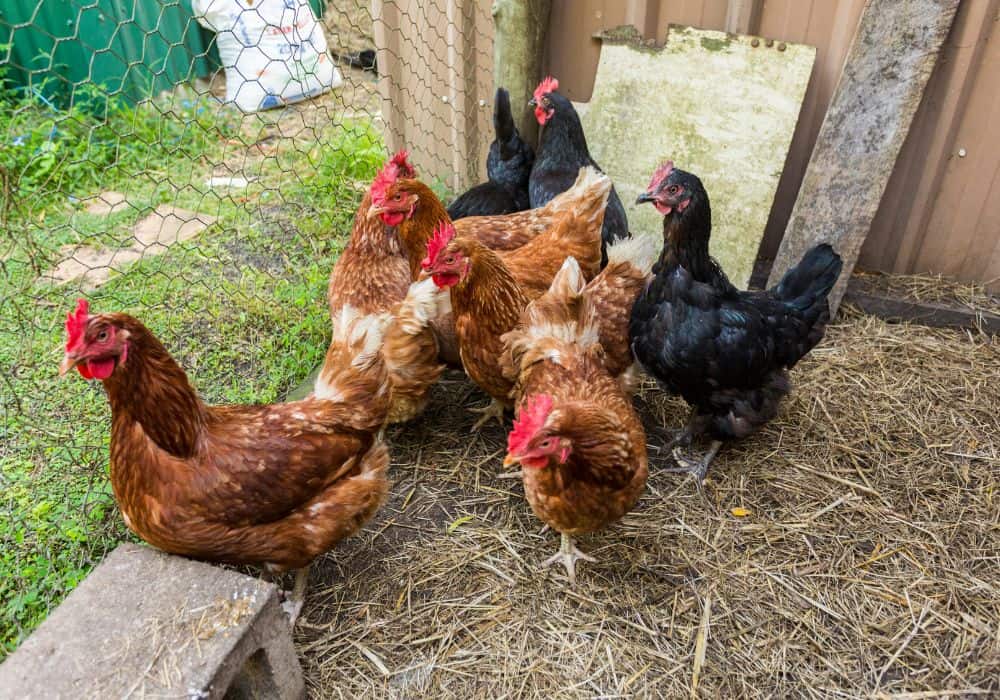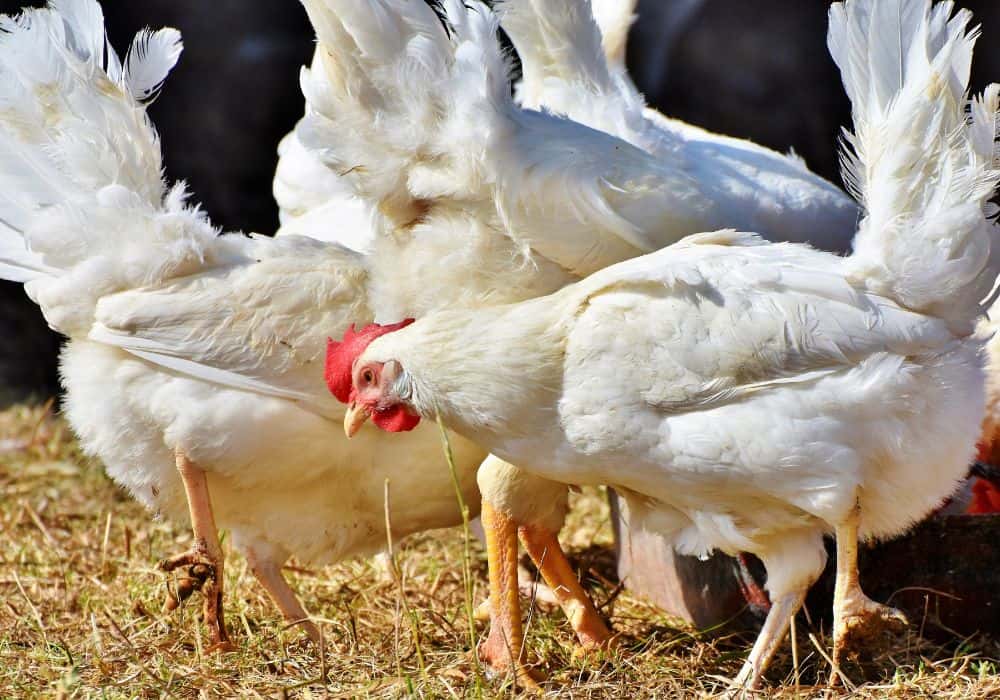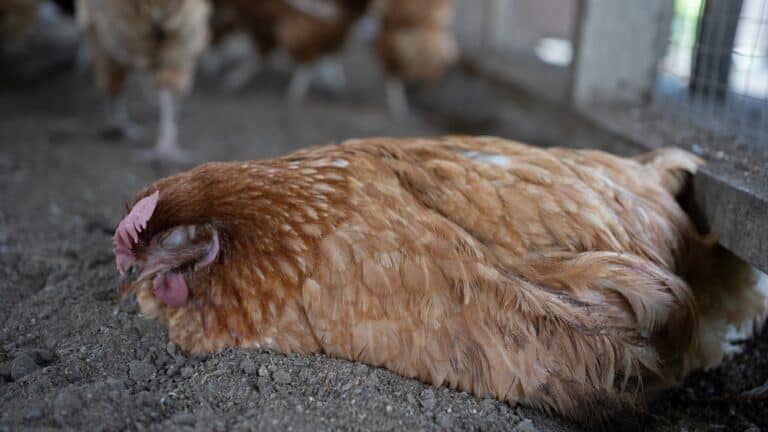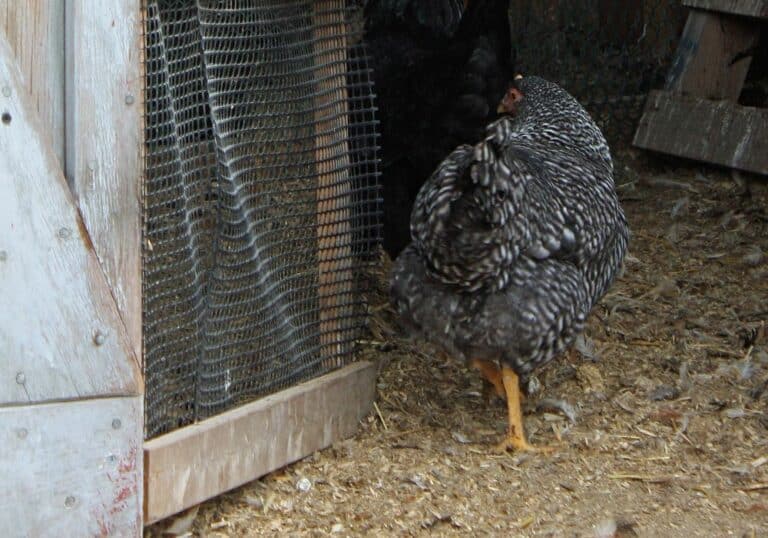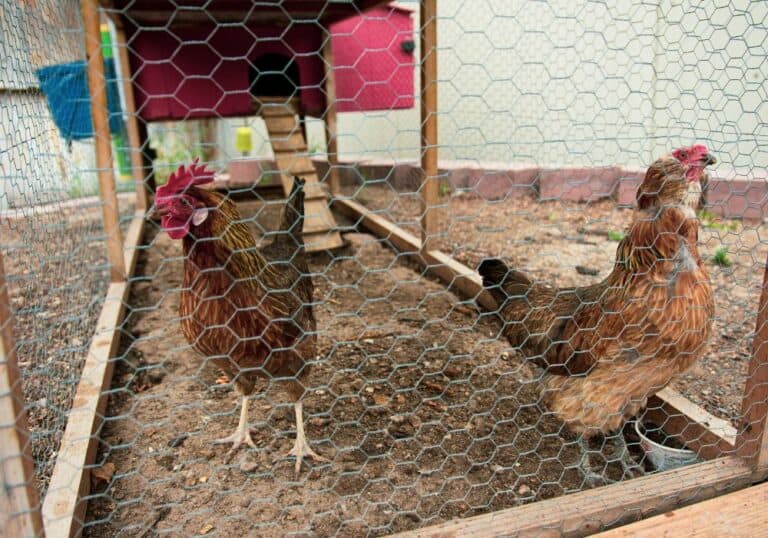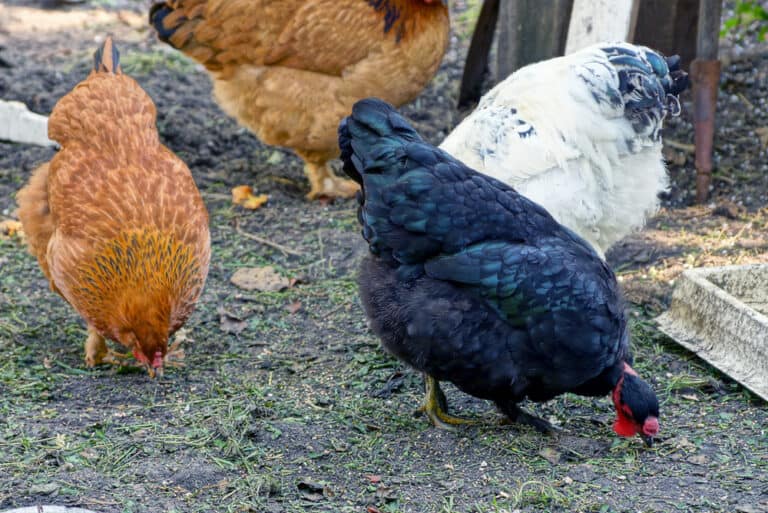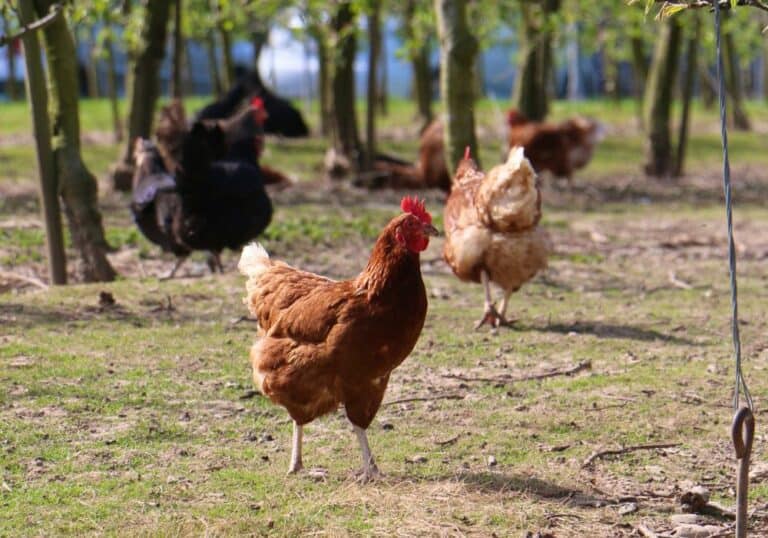When people think of chicken keeping, they generally think of things like cleaning coops, collecting eggs, and giving them feed. That’s normal, but that’s not all that they require. Like many other animals, chickens can have parasite infestations.
You may have heard of things like mites and fleas, but did you know that most poultry can also end up with a bad case of worms? It’s true, and it’s something that you are going to have to deal with sooner or later.
If you are new to chicken keeping, you need to be aware of what worming chickens are and why you should do it. This guide will give you a quick overview of it.
What kind of worms can chickens have?
Chickens do eat worms, but not all worms are benevolent for chickens. Some of the more common infestations include:
- Tapeworms
- Roundworms
- Liver flukes
- Eye worms
- Gape worms
- Capillary worms
Why are worms bad for a chicken’s health?
They’re parasites, pure and simple. Having worms means that your chicken is getting its nutrients leached out of its diet. It can also lead to vascular damage, emaciation, stunted growth, and at times, even blindness.
Simply put, a chicken with worms isn’t healthy. If left unchecked, a worm infestation can cause your chicken to die an early death.
PRO TIP – Many chickens will show symptoms like pale combs, unexplained weight loss, and lethargy when they have an infestation.
Can chickens die from worms?
While it may be very rare to see, it is possible for a chicken to die because of a worm infestation that ran amok. This often happens in chickens that are heavily immunocompromised, already ill, or that were just not given enough dewormer to treat their infection.
The good news is that this is a rare occurrence—and it’s also not one without lots of warning signs. If your chickens look ratty, are losing weight rapidly, are pooping out worms, and are coughing, you need to treat them.
How did my chicken get worms?
In most cases, it’s because they ate something that was initially infected with worms while free-ranging. They may have eaten, slugs, snails, or worms that had worm infestations.
Some may also have picked up worms from pecking at the feces of an infected chicken. It only takes the chicken eating one egg to end up with a bad infestation.
Contrary to popular belief, having a chicken that gets worms is not the fault of the keeper. Most chickens will get exposed to roundworms (at the very least) at least once. It’s just a part of that poultry life.
The key is to stop worms from getting too enmeshed in your chicken and to stop the spread as soon as you notice a problem. Not all worse are visible to the naked eye, which is why most farmers prefer to do regular deworming as a preventative measure.
PRO TIP – Roundworms and tapeworms are the most common types of worms that chickens can get. Learn the symptoms of each to make sure that you can spot the warning signs before the infestation gets to be too much.
Do you need a veterinarian to get rid of worms in chickens?
Most of the time, the answer is no, you don’t need a vet. There are plenty of dewormers that you can administer to your flock that can help prevent and treat worms in your chickens.
You may, however, want to call a veterinarian if you notice any of the following to be true:
- Your chickens are not getting better with the dewormer you gave them. This may be a more severe infestation than what you may be able to deal with on your own, or it could be a sign of an actual disease.
- You can’t figure out what type of worms they have. At times, this is okay. However, if you use a dewormer that is specific to a type of worm, it could warrant a call to the vet or someone who has a little more experience with chickens.
- Chickens in your flock have been experiencing symptoms that don’t quite line up with worms or parasites. If you see your chickens behaving strangely, suddenly dying overnight, or appearing unusually disheveled, it may make sense to call a vet just to avoid any extra problems.
- You’re noticing an alarming number of worms in their poop. If you can see worms and haven’t recently dewormed them, then this should be a reason to sound the alarm.
- Your chickens are very young or very small. Certain chicken sizes and ages won’t react well to dewormers.
What kind of dewormers are available for poultry?
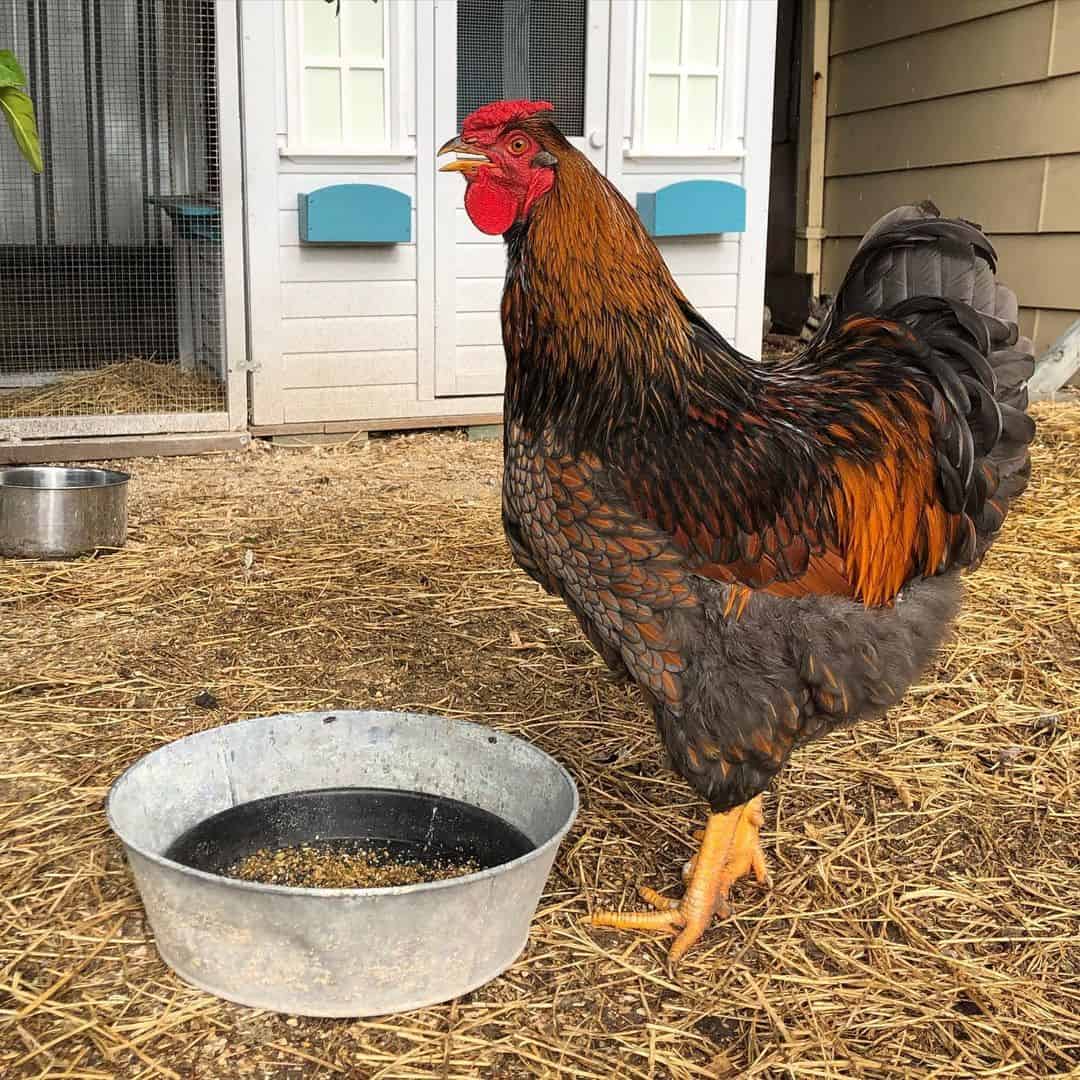
Chicken keepers have a lot of popular choices that they can buy from a typical farm supply store. Some of the most popular formulas include:
- Verm-X Liquid Poultry and Fowl Dewormer. This is the go-to for many farmers. It’s vet-approved, has all-natural ingredients, and can be added to food and water for three days. It works on chickens, ducks, and other types of fowl.
- Kilverm. This is not just for poultry. It also works on pigs and can treat a variety of different worms, including tapeworms and lungworms. Like Verm-X, it’s approved for use by veterinarians.
- Safeguard Dewormer. This comes already mixed into the feed. All you need to do is supplement your chicken’s diet to get rid of the worms. This is a multi-species dewormer. Just be careful about the withdrawal period for this medication.
- The Poultry Store Dewormer Bag. It’s all-natural and highly effective for most other types of worms. Chickens love it!
Can you get prescription dewormers for your poultry?
You can, and in some cases, you may want to. This will require a call to the vet. If you have a situation where your poultry is getting seriously affected by a worm infestation, then you may want to get a stronger dewormer.
How do you administer dewormer to chickens?
Obviously, the best way to figure out how to use a dewormer is to read the instructions that come with it. Most dewormers are pretty straightforward and you should follow what they tell you to do, all the way down to the letter. (This is doubly true for prescriptions!)
For most types of dewormers, you will be able to use the dewormer by adding a small amount of it to your chicken’s feed. Your dewormer will tell you how much you should expect to add to the food.
How long does it take for dewormer to do its thing?
Most prescription (and OTC) dewormers are fairly fast-acting. Your chickens generally will start to feel better in a couple of days after the dewormer is applied.
What natural remedies can help deworm chickens?
There are a bunch of folk remedies that are said to work as chicken dewormers, including wormwood, apple cider vinegar, pumpkins, pumpkin seeds, and diatomaceous earth. Some people have used them with mixed results.
The truth is that all of these remedies are not exactly guaranteed by science. There is little on-paper evidence that these remedies work, but some people have had decent results with them.
The best course of action is to choose a vet-approved dewormer, then supplement that with a safe remedy.
Things to consider when choosing a chicken dewormer
There are a couple of things you need to be aware of when deworming chickens. Here’s what to look for and what you need to be aware of…
Efficacy
Yes, in most cases, you are going to want to get the most effective dewormer you can get. It’s best to get a vet-approved, science-based dewormer for this reason. Otherwise, you’ll have to keep treating your chickens.
Safety
Not all dewormers are going to be safe for other fowl you might be raising. You want to get a dewormer that is good for all the chickens you have as well as any other animals you want to give it to. If you have chickens exclusively, then this isn’t that big a deal.
Some medications are only safe for large birds or birds past a certain age. Double-check to see what kind of meds are right for the members of your flock.
Withdrawal Period
One thing that you may not be aware of is that each dewormer will have an egg withdrawal period. This is a period of time when you cannot eat the eggs from treated chickens. In fact, you shouldn’t eat their meat, either.
There are several reasons for this. First, you may end up getting a case of poisoning from the amount of dewormer you ingest from the eggs. Second, there’s a chance that you could have an allergic reaction to it.
The withdrawal period is the time it takes for the treatment to work its way through the chicken, healing it and making its eggs safe to eat again. If you need the eggs to survive, then a short withdrawal period is a must.
How do you prevent worms?
An ounce of prevention is worth a pound of cure, right? With worms, that’s absolutely true. Prevention doesn’t always work, but it can help curb a lot of the problems that chickens can have with worms. These tips can really help:
- Keep your coop and chicken run powdered with diatomaceous earth. DE, or diatomaceous earth, reduces moisture and also can help kill bugs that cause worms in chickens. Regular treatments can also prevent ticks and mites from harming your chickens.
- Keep your coop clean. A clean coop is a coop that won’t have much spread of worms as a result of chicken poop. One of the key modes of transmission for most types of worms is through poop. ‘Limiting poop buildup is a smart move. ‘Nuff said.
- Isolate chickens that are showing symptoms of worms and treat them. Consider feeding them dewormers and seeing if they are feeling better after a couple of days. This can help prevent the spread of worms throughout your flock.
- Trim grass and remove debris. UV rays will help kill worm eggs, and a lack of debris will ensure your chickens won’t deal with too many pests. Having low grass makes it easy to free-range without the worry of contamination or mites latching on.
- Always make sure your chickens have clean running water nearby. If it can’t run, then at least change it daily. Dirty water can house pests that can carry worms and other parasites. Clean water is a must. Even your chickens need to stay hydrated.
- Consider adding a little apple cider vinegar to the chicken’s water. A couple of drops is all you need to help prevent the growth and proliferation of parasites in their water.
- Place food in a bowl, not on the floor. A lot of worm eggs are too small to be seen with the naked eye. When you have food on the ground, you will end up with a higher risk of contamination. By keeping food in bowls and plates, you lower the risk of infestation.
- If you have a very large flock or repeat infections, you may want to consider regular deworming. Some OTC worm prevention medications exist and have a very short egg withdrawal time. This may be best if you have show chickens.
Conclusion
Worms are not something that people tend to want to think about when they first become chicken keepers. However, it’s a part of tending to your flock and a part of life as a chicken owner.
If you are good about keeping your chickens healthy and clean, deworming is going to be a minor part of your life. Worms are a common parasite, but they shouldn’t be taking over your chickens’ health. Chickens with serious worm issues are neglected chickens.
Keeping dewormers on hand is a smart move, especially if you are looking to keep your chickens happy and healthy. With that said, seeing worms in your chicken’s poop isn’t a reason to panic. It’s one of the most treatable ailments a chicken can have.

